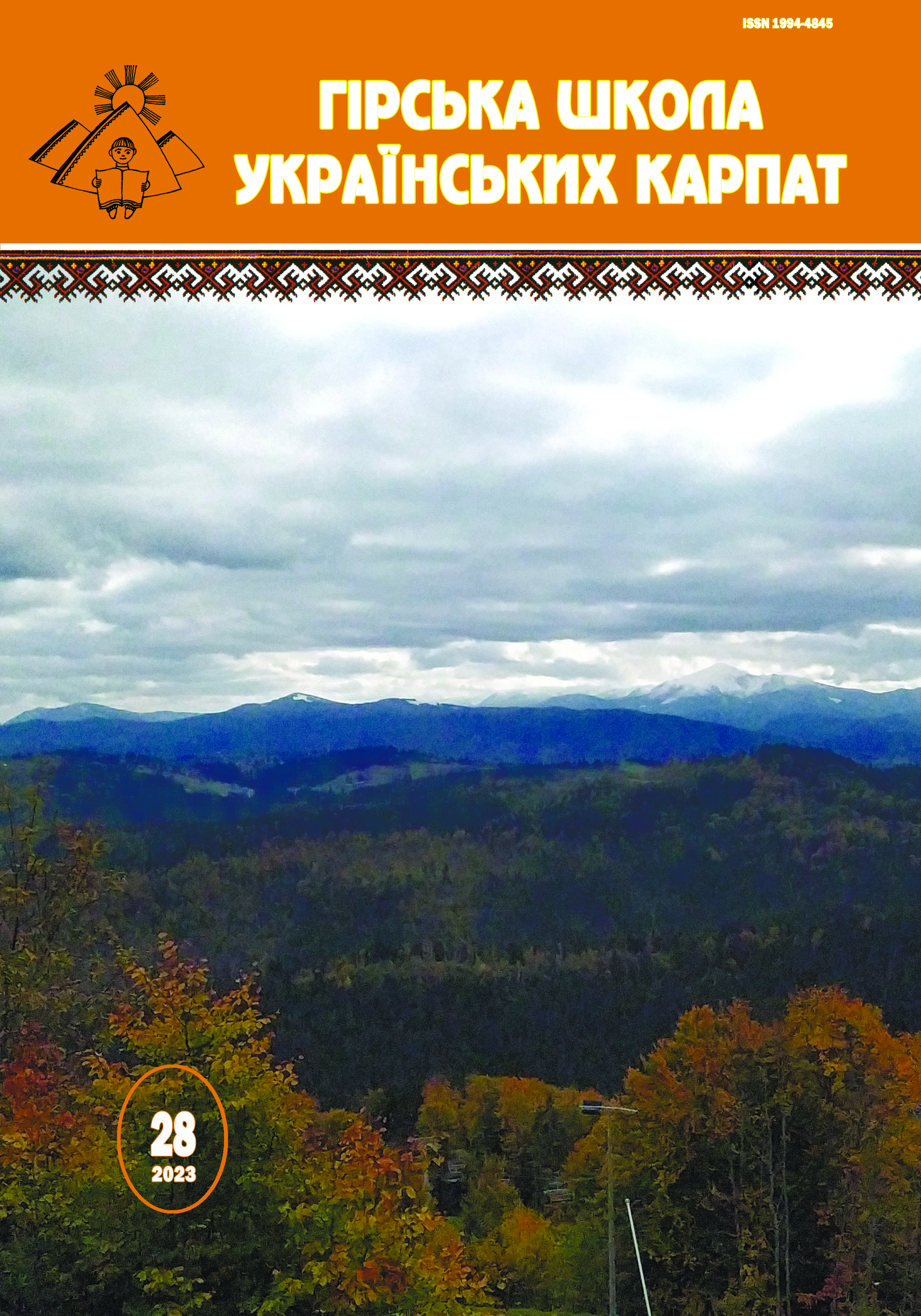ORGANIZATIONAL FORMS OF QUALIFICATION IMPROVEMENT FOR PRIMARY SCHOOL TEACHERS IN WESTERN REGIONS OF UKRAINE (1970s-1980s)
DOI:
https://doi.org/10.15330/msuc.2023.28.52-56Keywords:
postgraduate pedagogical education, teacher qualification improvement, lifelong learning, self-education, western regions of Ukraine, primary school teachers, pedagogical innovators, advanced pedagogical experience, regional institute for teacher improvementAbstract
This article addresses the issue of postgraduate education for teachers in its historical development in the western regions of Ukraine. Despite the challenging conditions for the development of Ukrainian pedagogical education during wartime, the problems of quality training and retraining for primary school teachers remain relevant. Pedagogical education is the strong foundation on which all educational reforms, including the New Ukrainian School, are based. For Ukraine, which is evolving in the context of European educational processes, the issue of continuous pedagogical education (lifelong learning) is crucial. Ukrainian educational theory and practice have accumulated certain experience in the development of postgraduate education, particularly in the western region of Ukraine in the 20th century (Ivano-Frankivsk, Ternopil, Chernivtsi, Lviv, Zakarpattia, Rivne, Volyn regions). Continuous pedagogical education for primary school teachers in the western regions of Ukraine in the 1970s-1980s was provided by regional institutes for teacher improvement. The development of the postgraduate education system was based on relevant legislation. In addition to traditional forms of qualification improvement (courses for primary school teachers), various lectures, seminars, conferences, elective and practical classes, individual and group consultations, exams, excursions, and organizing teaching practice in the best schools in each region were conducted. Technical teaching aids and computers were actively used, along with role-playing and business games, lesson simulations, and more. This organizational work was particularly intensified after the educational reform in 1985. Special attention was given to the promotion of advanced pedagogical experience, which was studied, disseminated, and contributed to the professional development and self-education of teachers. Still relevant and requiring separate additional research is, for example, the experience of Yavoriv Secondary School (headed by the pedagogical innovator P. Losyuk) and the experience of Serednoberezhivska Secondary School (headed by the pedagogical innovator V. Bilavych) in the Kosiv district of Ivano-Frankivsk region, which researchers during the studied period considered as an important organizational form of postgraduate education for teachers.


